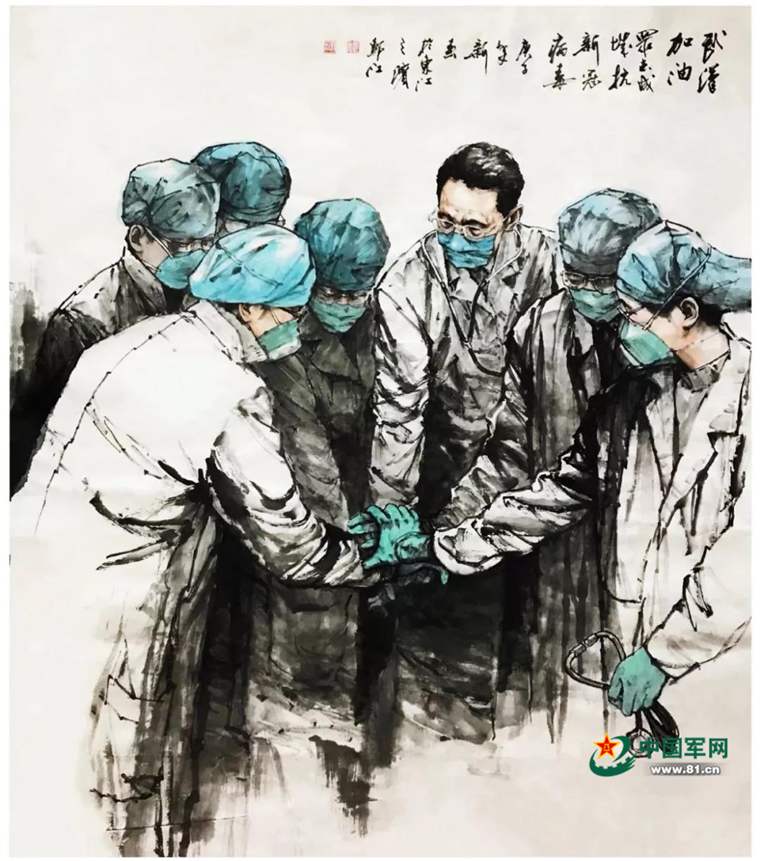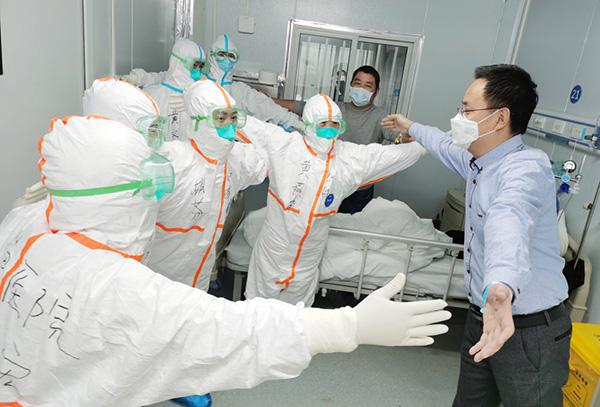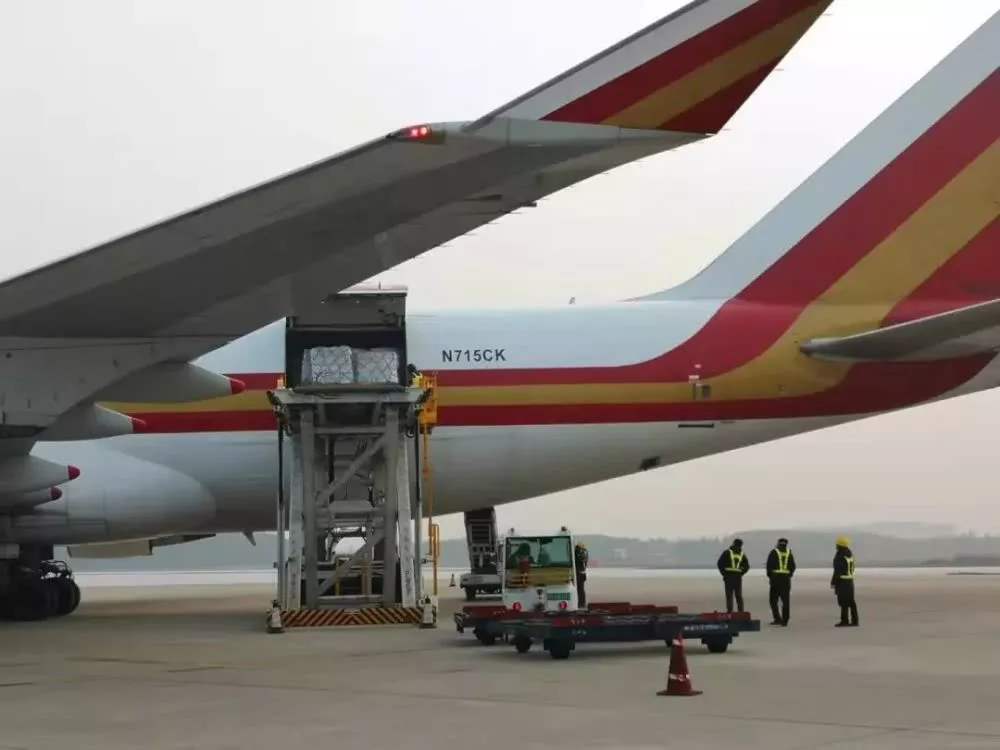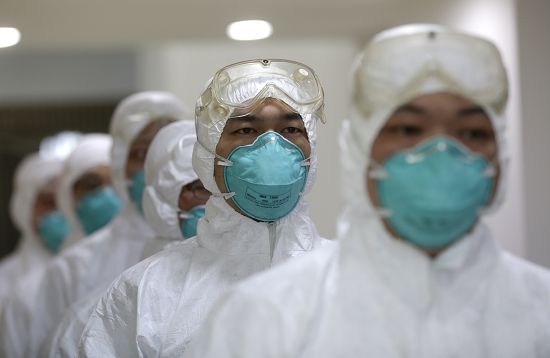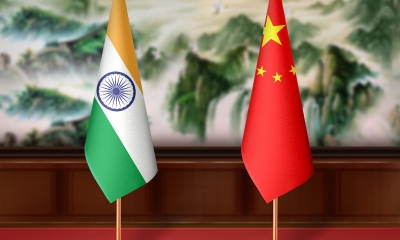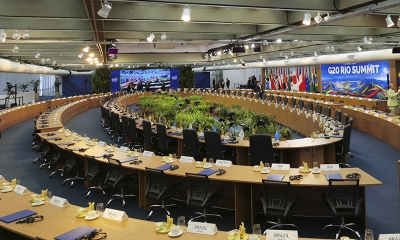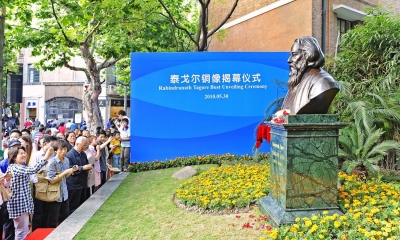Stop Demonizing China by Exploiting the Coronavirus Crisis

There is no doubt that China with its 1.4 billion people will again conquer the “people’s war”, (coronavirus crisis) with firm resolve.
The tragedy of the current pneumonia epidemic caused by the “novel” coronavirus, christened as COVID-19 by the World Health Organization (WHO), originated in the Chinese city of Wuhan, Hubei Province early December last year has engulfed the hearts of the Chinese people, transmitting the virus to almost every province in China as well as around 25 countries in the world. But at the same time, the speed with which the Chinese Government detected the outbreak and exhibits its resolute efforts in the fight against this public health epidemic (not “pandemic” as used by many Western media outlets) has earned praises from many countries around the world.
There is no doubt that China with its 1.4 billion people will again conquer the “people’s war”, (coronavirus crisis) with firm resolve, strong measures, rapid action and extensive mobilization despite some countries’ shameless attempts to belittle China’s image on the world stage as well as the corona-racist attacks against Chinese people.
Although the two previous meetings of the Emergency Committee under the International Health Regulations (IHR) (2005) convened by the WHO on January 22 and 23 stated that that the current outbreak of 2019nCoV in China did not yet constitute the global emergency declaration, finally on January 30, WHO Director-General Dr. Tedros Adhanom Ghebreyesus declared the outbreak a Public Health Emergency of International Concern (PHEIC) due to concern that the virus could spread to countries with weaker health systems, despite the fact the global health body welcomed “the efforts made by China to investigate and contain the current outbreak.” Even during his visit to Beijing on January 28, Dr. Tedros effusively appreciated China’s novel virus containment strategy stating that China was “actually setting a new standard for outbreak response.” On February 12, he further applauded China’s massive response to the outbreak by saying that China’s action is “making us safer.”
It’s shameless to demonize China as a virus country
But at this difficult time when the Chinese Government and people have been “making all-out efforts to battle the disease”, the “hidden” actions and “open” words of the US Government regarding the COVID-19 outbreak need a strong condemnation.
Many Chinese commentators and bloggers, international scholars and analysts are questioning the United States and its allies’ attempts to influence the WHO Emergency Committee to declare China a “coronavirus” country. It is learnt that this move was largely driven by the United States, and the WHO began to consider the proposal to list the new coronavirus outbreak as a “global health emergency”. However, in the early stages of the epidemic, the new coronavirus appeared to be “less serious” than the SARS epidemic of 2002-3, H1N1 virus of 2009-2010 or the 2013-2016 Ebola epidemic and the chance of becoming a worldwide epidemic was also very low. More importantly, the mortality rate of the outbreak in China does not constitute the criterion of “very serious international threat” since 99 percent of cases and deaths were concentrated within China, with only 68 confirmed cases outside China at the time of the WHO declaration of PHEIC.
2009 H1N1 influenza virus remains a big threat
Although the novel coronavirus epidemic has claimed 1,772 lives in China (including one in Hong Kong, 1 in Taiwan), 3 abroad and infected more than 70,635 across China as of February 17, the great good news is that the number of cures (10,844) has surpassed the number of dead (1,772) in China. So far, confirmed cases outside China are only 510. The most positive development is that the number of new confirmed cases outside Hubei Province has been dropping since February 4, all way down from 890 on February 3 to 45 on February 19, according to China’s National Health Commission.
On the contrary, the H1N1 influenza virus, known as swine flu, which first broke out in the US in the spring of 2009, spread like wildfire over 200 countries and regions and killed at least 284,500 people worldwide between 2009 and 2010, of which 12,469 died in the US alone in the first year of the epidemic. According to the US Centers for Disease Control’s official website (CDC), the pandemic H1N1 virus caused 75,000 deaths between 2009 and 2018 just in the US alone. In this season the flu has already caused an estimated 19 million illnesses, 180,000 hospitalizations and 10,000 deaths in the US, according to the CDC.
Although the cases of novel coronavirus infection are still rising, they still cannot be compared with H1N1. Hence, the COVID-19 may be bad but the swine flu’s new numbers still far worse.
Washington ups underhanded economic ante on China
Since assuming the US presidency in January, 2017, Donald Trump with his “America First” mindset has not hidden his concern about China’s rise as an effective world superpower, describing China as “rival”. Since the initiation of trade war against China in March 2018, Trump has used various international platforms such as WHO and WTO to discredit China’s image as the responsible global power. The US President knows well that if once China is labeled as the “tag” of global health emergency, its neighboring countries as well as its trading partners around the world will become panic and restrict travel and trade with China and its effect is no less than global economic sanction. The recent despicable expressions and acts by the US Government in COVID-19 outbreak have exposed its deep-rooted bias against China.
Coronavirus unlikely to cause long-term setback to China’s economy
Some economists believe that although the current epidemic will cause a certain blow to China’s tourism and consumption activities, and will affect economic growth in the first quarter, the negative impact will be only temporary, and will not cause a long-term effect on the Chinese economy. At present, China is still an important market for the United States. If the Chinese economy declines significantly, it will also cause huge losses to the US economy. Undoubtedly, the robust Chinese economy with a greater focus on domestic demand and a reduced dependence on exports can ride out the storm of the outbreak soon.
The US gesture seriously violates the spirit of “Love thy neighbor”
Unfortunately, since the very beginning of the Wuhan coronavirus cases, the United States with ill motives has been creating panic and influencing other countries to follow its path so that China’s several industries especially supply-chain markets, tourism and aviation markets could be severely hampered. In one hand, Trump said that his country will offer China “any help that is necessary”, on the other hand, his government first sent a special chartered flight to bring back American consulate staffers and US citizens from the quarantined Wuhan city.
On January 30, the US State Department has imposed entry restrictions on Chinese nationals and quarantines on US citizens returning from China. The US has raised Level 4 travel advisory to China to the same level as Afghanistan, Iran, Libya — places with a “greater likelihood of life-threatening risks.” This gesture seriously violates the spirit of Good Samaritan or “Love thy neighbor”.
The coronavirus outbreak couldn’t bring jobs back to the US
On the other hand, wearing the suit of his boss, US Secretary of Commerce Wilbur Ross said in an interview with Maria Bartiromo of Fox Business on January 30: “I think it (the deadly coronavirus) will help to accelerate the return of jobs to North America, some to [the] US, probably some to Mexico as well.”
Needless to say, Ross’s insipient thinking about returning jobs to US shed light on the fact that the United States has significantly become baffled by China’s key role in global supply chains. However, Ross’s remarks have been heavily criticized by the Chinese Government and the international community. In response to the US Commerce Secretary’s comments, Cui Tiankai, Chinese Ambassador to the US, said that the two countries should “guard against any political virus” that prevents them from working together.
WHO doesn’t recommend limiting trade and travel against China
Now influenced by the United States, a growing number of governments- including Britain, Germany, France, Australia, India, Singapore, Malaysia, the Philippines, Vietnam, to list a few, have ordered their citizens to refrain from travelling to China although the WHO made it clear about its opposition to travel or trade restrictions against China.
On February 1, WHO chief Tedros tweeted that “travel restrictions can cause more harm than good.” The United States and other countries should keep in mind that the WHO declaration of PHEIC is not “a vote of no confidence on China.” More importantly, no evidence has suggested that travel bans will help fight against the coronavirus so far. The US Government and other countries should keep in mind that China did not issue any travel ban to the US following the H1N1 outbreak in 2009.
India must show its healing touch in China’s troubled times
As a true neighborhood friend, India must express its support and solidarity with China and its people at this difficult time when the country is combating the current epidemic. India should maintain normal personnel and trade exchanges with China to jointly overcome the difficulties. It is hoped that following the legacy of Dr. Dwarkanath Kotnis who served the wounded and sick patients in China during the War of Resistance against the Japanese (1931-1945), the Indian Government must send a medical team to heal Chinese patients in this hour of crisis as it did during the Sichuan earthquake in 2008.
China’s fight against the pneumonia epidemic deserves respect
There is no doubt that fighting the novel coronavirus pneumonia is a matter of life and death for all countries around the world. It’s not the time for pushing political and economic agendas against China by using an epidemic.
Immediately after the first cases of the coronavirus were reported, the Chinese Government under President Xi Jinping has attached great importance to win the battle against the epidemic. On January 25, President Xi Jinping emphasized: “The prevention and control of the new coronavirus is currently the primary task” further alluding to battling the “devil”. Entrusted by President Xi Jinping, on January 27, Premier Li Keqiang went to virus-hit Wuhan to give directions to the prevention and control work. Vice-Premier Sun Chunlan who is the head of a “central guiding group” has been leading the ground task there. On February 10, President Xi inspected the pneumonia prevention and control work in Chaoyang District of Beijing which demonstrates the country’s top leadership’s central role in directing the government’s response to this troubled times.
In fact, China’s prevention and control measures to curb the spread of the epidemic are unprecedented in scale and magnitude. China locked down several cities in four provinces, helping to prevent the virus from being exported to other parts in China and the rest of the world. China’s commitment to protecting the safety and health of its people and every foreign national in China deserves much respect and appreciation. The number of discharged patients from hospitals makes it clear that the epidemic is not only preventable, controllable and but also curable. Hence, there is no need to panic or overreact.
Like the Chinese people, the international community also believes that China will emerge as a champion against the epidemic with firm resolve while defeating the US audacious slander to tarnish China’s international image.
The author is the founder and secretary of New Horizon Radio Listeners’ Club, a China-watcher club based in West Bengal, India.
Editor: Cai Hairuo
 Facebook
Facebook
 Twitter
Twitter
 Linkedin
Linkedin
 Google +
Google +
